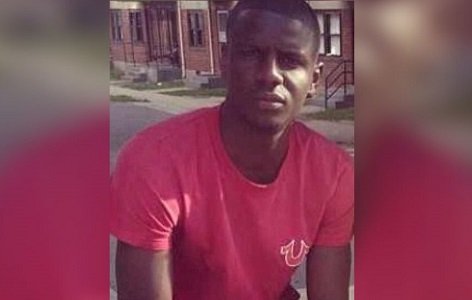(CNN) — On Monday, a third Baltimore police officer, Lt. Brian Rice, was acquitted of all criminal charges in the death of Freddie Gray, a suspect who was fatally hurt last year while being transported, handcuffed, in a police van.
This was the fourth failed attempt by Marilyn Mosby, Baltimore City’s elected state’s attorney, to convict six officers of any crime in the case.
Rice’s acquittal comes less than a month after Baltimore police officer Caesar Goodson, who was driving the van in which Gray was transported, was also acquitted of all criminal charges in Gray’s death, as was Officer Edward Nero in May. Last December, the trial of Officer William G. Porter ended in a hung jury.
Those who have not been following the trial assume there was some justification to the state’s charges. This assumption may be too generous. The prosecution not only failed to prove its case beyond a reasonable doubt, but as presented, the facts failed to show even evidence of a crime.
That may disappoint some who believe the police get away with murder, but these verdicts were correct. When cops do commit crimes, by all means they should be charged and convicted. Gray died in an accident — a tragic, even preventable accident — but he did not die because of a criminal act.
The trials come down essentially to failure to seat belt and failure to provide prompt medical attention. Since Rice was the highest-ranking officer on the scene, perhaps Mosby hoped her luck would change.
But with the same facts and evidence presented in each trial, the judge reached the same verdict. Calls have grown stronger for Mosby to drop charges against the remaining officers, since further trials are almost assured to achieve similar not guilty on all charges verdicts. Porter’s new trial is scheduled for Sept. 6. Officer Garrett Miller faces trial on July 27; Sgt. Alicia White on Oct. 13.
The professional failings of Mosby are many. She failed to work with other investigative teams; she rushed to bring criminal charges with great fanfare; her office withheld exculpatory evidence from the defense and put a non-supporting witness on the stand.
But highlighting these instances of incompetence may distract from the real issue: These six Baltimore police officers never should have been criminally charged to begin with. Since the riots of last April, as their trials have progressed, more than 400 Baltimoreans have been killed.
Do their lives not matter? Most of the killers walk free, unprosecuted.
The video of Gray being dragged to the van by police officers at his initial arrest outraged many. But Gray went limp and was not injured at the time of his arrest. State prosecutors conceded this. He was fatally injured later, they said, after being uncooperative, shackled hand and foot, and placed face down on the floor of the van.
When cops do commit crimes, by all means they should be charged and convicted. The charges is this case came down essentially to failure to seat belt and failure to provide prompt medical attention.
But no evidence was presented that officers knew of and then failed to act on Gray’s injuries. Had Freddie Gray been seat-belted, he would probably still be alive. So why wasn’t he?
To protect prisoners from each other, Baltimore installed a partition in police vans that runs down the middle front to back. The remaining width is less than 30 inches, seat included. The problem is less about seat belts than 21st-century use of what is little more than a motorized 19th-century wagon.
It is not practical, safe, or reasonable to ask officers to seat belt combative prisoners in a confined space. It takes two hands to seat belt a combative prisoner who might bite, head butt, spit, or reach for your gun even while handcuffed. There just isn’t enough room.
Better and safer transport vans do exist, but Baltimore hasn’t invested in them. These have cameras and forward-facing compartmentalized rows of high-back slightly padded seats. When Baltimore finally bought new vans, they purchased slightly roomier versions of the old vans.
So is it just about money? Well, the city quickly paid Gray’s family $6.3 million after his death. And Gray wasn’t even the first prisoner to die in transport.
This money could have replaced the city’s prisoner transport fleet many times over before the death of Freddie Gray.
That the city didn’t and still hasn’t is a failure of political leadership, not of the arresting officers or drivers of the police wagon.
Peter Moskos, a former Baltimore police officer, is an associate professor in the department of law and police science at the John Jay College of Criminal Justice in New York. He is the author of “Cop in the Hood” and “In Defense of Flogging.” The opinions expressed in this commentary are solely those of the author.
